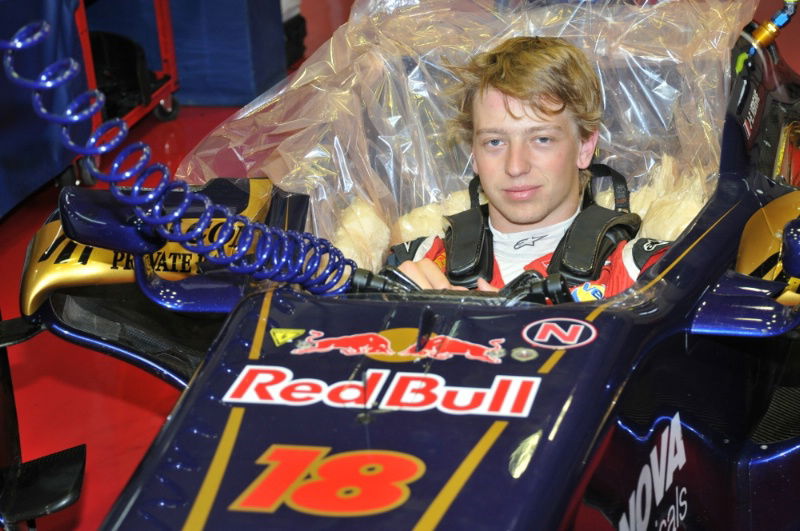Q&A: Adrian Newey, Red Bull Racing

Adrian Newey is one of Formula One's most celebrated designers and engineers, known for his expertise in the aerodynamic performance field of formula cars.
His success with Williams and McLaren in the '90s took the sport by storm and, now enjoying the same spoils with Red Bull Racing, it is hard to see Newey being stopped in his tracks on his way to taking Red Bull to a fourth consecutive drivers' and constructors' title in 2013.
The design guru from Stratford-upon-Avon spoke to Dexter Fielding at this year's Goodwood Festival of Speed about the technical side of Formula One.
Q:
What do you think are the key components on the current F1 cars?
Adrian Newey:
Today's cars are literally thousands of components; you would have to take a holistic view of the car for that answer. Primarily there's the aerodynamics, the vehicle dynamics and the construction of the car. If they all come together, you have a good component basis to work from.
Q:
Will the regulation changes for next year have a drastic effect on technical and design side of the cars?
Adrian Newey:
Yes, next year is a big change in particular for the packaging of the car. The new engines need a lot of cooling, because not only have you got the combustion engine, but the turbo charged parts too. With the electrical side, what we call KERS and that also needs a lot of cooling. The cooling is a big challenge, the gearbox regulations are also different and there are some aerodynamic changes, so it is a big task. It is difficult for all the teams because we are trying to blend the development of this year's cars with research of next year's machines.
Q:
How important is the drivers input and thoughts of new parts during development phase?
Adrian Newey:
We have hundreds of sensors on the cars, which links to various data entry and telemetry ports which tells us what the cars is doing. The driver will be able to adapt his driving style to what the car is doing. If the car has a nervous back end, he may decide to take a different line into a corner and that will show up as under steer, so the drivers feedback in terms of how the car is behaving as well as simply what it is doing is important.
Q:
What has been your biggest success in your career, so far?
Adrian Newey:
I think my first championship with Williams was very special, my time with McLaren was also great. Joining Red Bull for me was a risk and a fresh challenge, I was very lucky to have worked with Williams and McLaren before that, but I wanted a new challenge and that was joining a team from the start, which was the Red Bull opportunity. So I joined Red Bull with the hope and dream of perhaps being able to win the odd race and to turn that into championships has been fantastic.
Q:
Does any F1 technology go into road cars?
Adrian Newey:
It does, on a funnier note, the fake carbon fibre which every self-respecting boy racer has, is borrowed from the popularity in F1. The continued development of speed-of-response, lightweight structures and electronic development, they are less obvious, but a direct spin-off from Motorsport in general to road cars.
Q:
What futuristic regulations would you perhaps, like to see in ten years' time?
Adrian Newey:
That is a very tough one. If you could look back to ten years ago, at the current cars, they would look a bit strange and ridiculous. I do very much hope that the current trend for evermore restricted regulations doesn't continue, because you end up with a rule book designing the car for you which then means that the cars become the same.
Q:
Do you have any advice for design and tech students who are looking to get into the sport?
Adrian Newey:
Be persistent is my overall advice. Get the best possible degree that you can, it is a hard sport to get into unfortunately, if you can't get into it straight away, then perhaps look at something similar in the automotive or aerospace industry, something relative like that helps. There are lots of feeder series, GP2, Sports Car who will be looking for that, so keep your hopes up and keep applying for positions.
by Dexter Fielding
